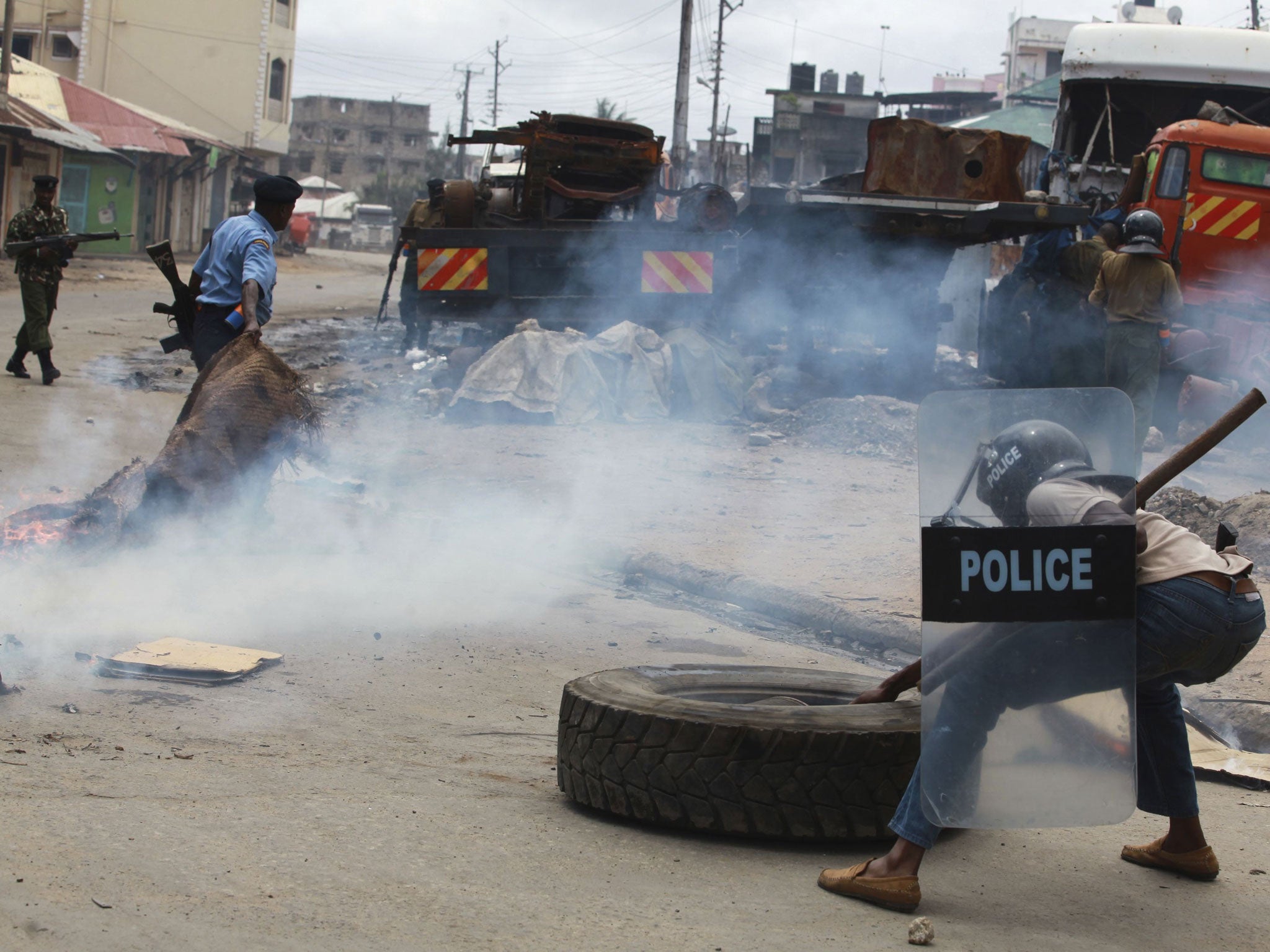Kenya: Mombasa descends into riots as Islamist cleric is murdered two weeks after Nairobi shopping centre massacre

Your support helps us to tell the story
From reproductive rights to climate change to Big Tech, The Independent is on the ground when the story is developing. Whether it's investigating the financials of Elon Musk's pro-Trump PAC or producing our latest documentary, 'The A Word', which shines a light on the American women fighting for reproductive rights, we know how important it is to parse out the facts from the messaging.
At such a critical moment in US history, we need reporters on the ground. Your donation allows us to keep sending journalists to speak to both sides of the story.
The Independent is trusted by Americans across the entire political spectrum. And unlike many other quality news outlets, we choose not to lock Americans out of our reporting and analysis with paywalls. We believe quality journalism should be available to everyone, paid for by those who can afford it.
Your support makes all the difference.Religious riots sparked by the murder of a popular Islamist cleric have left four protesters dead in Mombasa, setting the city on edge two weeks after Islamist militants killed dozens of people in an audacious terror attack on a Nairobi shopping centre.
Sheikh Ibrahim Omar, a preacher at the Masjid Musa mosque which has alleged links to the Somali al-Shabaab group, was killed with three companions when the car he was in was shot at by unknown assailants on Thursday night.
His followers blamed the security services for shooting the preacher in retaliation for al-Shabaab’s attack on the Westgate mall which killed at least 67 people.
Kenya police have denied any involvement in the killing, which mirrors that of Sheikh Aboud Rogo Mohamed, a prominent cleric and alleged al-Shabaab recruiter who died when his car was shot at just over a year ago. His death, also blamed on the security services, sparked deadly riots in Mombasa.
“The police have nothing to do with the shooting. That’s not how we operate,” Robert Kitur, Mom-basa County police commander, said.
Muslim youths set fire to a Salvation Army church, burned tyres and blocked the main road into the city. Police became involved in battles with protesters, firing tear gas to disperse them. One protester was shot dead, while three others died of stab wounds.
The imam was on the road to Malindi outside Mombasa when unknown gunmen started shooting at the car. “There were gunshots and the vehicle veered off the road, I don’t know how I walked out of the vehicle alive,” Salim Abdi, sole survivor of the shooting, told Agence France Presse. “All four others I was with in the vehicle died on the spot.”
Only a few kilometres away Sheikh Rogo was shot dead in a similar attack last August. Rogo had been accused by the United States and Kenya of recruiting and funding militants from al-Shabaab, which is affiliated to al-Qa’ida. Omar was a student under Rogo, and apparently shared his hardline ideological beliefs in this city where many Muslims feel marginalised by the country’s predominantly Christian leaders.
At the Masjid Musa mosque, where both men preached, worshippers accused the police of trying to divert attention from intelligence failures at the Westgate mall.
Join our commenting forum
Join thought-provoking conversations, follow other Independent readers and see their replies
Comments